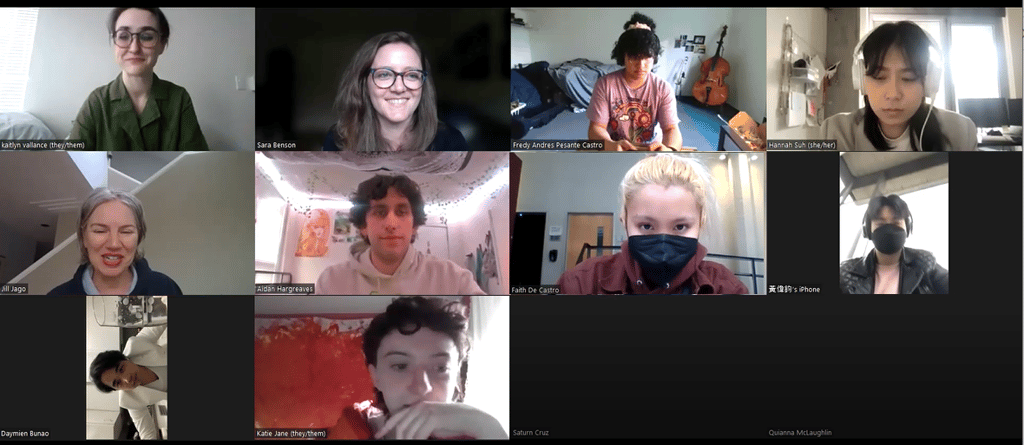How can higher education better anticipate needs of students to deliver an exceptional campus experience? Ask the question!
Colleges and universities just might be undergoing the biggest threat to their existence. The pandemic didn’t create these challenges; it did, however, amplify them and show up the cracks. With soaring tuition and living costs, quality digital learning alternatives, and economic demand for skilled tech workers (highly paid jobs that prioritize demonstrated skills over credentials), many young people are increasingly wondering – is college worth it?
The Customer is Always Right
Every successful consumer goods or services organization spends a great deal of time (and money!) to understand what their customers want. What motivates them? What frustrates them? What makes them want to buy from one company versus another? It may sound strange, and possibly vaguely offensive, to ask academic establishments to think of their students as “customers” or “consumers” – but that is exactly who they are. They have choice, agency and limited time and money. Understanding what they value and what they are willing (and not willing) to pay for will determine which institutions thrive and which flounder.
It's about Experience – not Space
One of the B+H Advance Strategy team’s favorite mantras is “don’t just do something, stand there!” This is the antidote to jumping in and solving a problem with a beautiful design before the problem is fully understood. We know that “build it and they will come” has a low success rate. We advocate for engagement with stakeholders to understand their desired experience and outcomes. This is very different to asking what kinds of spaces they would like – and drives very different outcomes. Great design is a solution in response to people’s needs, hopes and challenges; not a space solution predicated on what worked in the past or is currently trending. Our process is designed to gain valuable insights through activity-based learning – observational journey mapping, watching how people move through space, collecting visual evidence, pattern-seeking, and engaging them in meaningful conversations about what matters to them. It’s all about challenging assumptions and seeking opportunity.
Here are some examples of insights gained when we’ve engaged students in comparing their current experience with their desired experience.
- A place to build community where no one feels excluded
- Robust career development opportunities
- An efficient way to get to/from daily essentials, quickly
- Large surface areas so they can spread their gadgets out easily
- Bookable private spaces they can access on demand when they want to use them
Cornish Leading the Way
Cornish College of the Arts in Seattle, WA is leading the way in opening their doors to future possibility. Cornish College is a small (~500 to 700 person) school with a rich legacy of promoting arts education. It was founded by Nellie Cornish in 1914 as a drama, music and dance school, and has since grown to offer eight degrees across the visual and performing arts disciplines. Over its lifetime the college has grown and consolidated operations across the city, primarily in the Capitol Hill and South Lake Union neighborhoods of Seattle.
The college is currently undergoing a campus unification effort to create a more cohesive experience for students in a central location at the South Lake Union Campus. B+H Advance Strategy has been helping Cornish College engage with stakeholders across the organization; students, staff, faculty, administration and alumni. We have collected insightful quantitative and qualitative data about the campus experience using a mix of digital and in-person tools and methodologies:
- Campus Experience Survey: 175 responses from students, faculty, staff, administration + alumni
- Focus Group Workshops: 3 workshops + 38 people (Students, Faculty + Staff)
- Student Interviews: scheduled with students with courses in the Capitol Hill neighborhood
- Visioning Workshop: 23 participants representing 12 academic departments (faculty, staff, administration + students)
The findings from this work identified clear priorities that emphasize the college’s value proposition as well as unique opportunities to create a sense of place that is truly Cornish.
Smart Investments for High Impact
For example, the number one priority among all stakeholders is to create more inviting opportunities for students to connect with each other and share art informally, as an interdisciplinary community. Most of the Cornish faculty and staff are also practicing artists therefore creating space to share art informally provides an exceptionally valuable experience for Cornish students – the sort of experience that factors into student decision-making.
In an open-ended question from the survey asking what is missing from the campus experience, three clear priorities emerged:
- community space
- reimagined staff + faculty workspace
- outdoor space
With over 20% of respondents stating that at least one these items is missing from the campus experience, this type of information is invaluable in helping leadership make critical decisions about highest impact for limited investment dollars.
Insights like the example above provide invaluable information for a campus real estate strategy that balances budget with impact, want with need, and experience over space.
If we had asked about space instead of experience, we likely would have received a list of rooms and features that represent adjustments to what already exists. We would have missed the opportunity to create space for a future that responds to the changing behaviors and aspirations of the people who will choose to make the campus their home for four years or more. Engaging stakeholders in the process not only anticipates the needs of the end user, which ultimately saves resources, but directly connects place to purpose. For Cornish College, that means creating a place “to prepare students to contribute to society as artists, citizens, and innovators.” That is a compelling value proposition for tomorrow’s “customer.”

